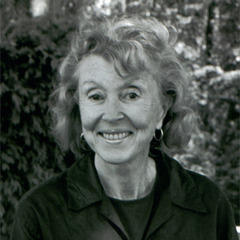Samuel Richardson Quotes - Page 5

Samuel Richardson (1755). “A collection of the moral and instructive sentiments, maxims, cautions, and reflexions, contained in the histories of Pamela, Clarissa, and Sir Charles Grandison: Digested under proper heads, with references to the volume, ...”, p.80
Nothing can be more wounding to a spirit not ungenerous, than a generous forgiveness.
Samuel Richardson (1862). “Clarissa Or The History of a Young Lady : Comprehending the Most Important Concerns of Private Life; and Particularly Shewing the Distresses that May Attend the Misconduct Both of Parents and Children, in Relation to Marriage”, p.478
Samuel Richardson (1862). “Clarissa; Or, The History of a Young Lady: Comprenhending the Most ...”, p.90
Samuel Richardson (1862). “Clarissa Or The History of a Young Lady : Comprehending the Most Important Concerns of Private Life; and Particularly Shewing the Distresses that May Attend the Misconduct Both of Parents and Children, in Relation to Marriage”, p.176
Samuel Richardson (1755). “A collection of the moral and instructive sentiments, maxims, cautions, and reflexions, contained in the histories of Pamela, Clarissa, and Sir Charles Grandison: Digested under proper heads, with references to the volume, ...”, p.7
Every scholar, I presume, is not, necessarily, a man of sense.
Samuel Richardson (2014). “Delphi Complete Works of Samuel Richardson (Illustrated)”, p.4019, Delphi Classics
A beautiful woman must expect to be more accountable for her steps, than one less attractive.
Samuel Richardson (1755). “A collection of the moral and instructive sentiments, maxims, cautions, and reflexions, contained in the histories of Pamela, Clarissa, and Sir Charles Grandison: Digested under proper heads, with references to the volume, ...”, p.232
Samuel Richardson (1980). “A collection of the moral and instructive sentiments: a facsimile reproduction”, Scholars Facsimilies & Reprint
Samuel Richardson (1980). “A collection of the moral and instructive sentiments: a facsimile reproduction”, Scholars Facsimilies & Reprint
Samuel Richardson (1755). “A collection of the moral and instructive sentiments, maxims, cautions, and reflexions, contained in the histories of Pamela, Clarissa, and Sir Charles Grandison: Digested under proper heads, with references to the volume, ...”, p.54
Those who can least bear a jest upon themselves, will be most diverted with one passed on others.
Samuel Richardson (1755). “A collection of the moral and instructive sentiments, maxims, cautions, and reflexions, contained in the histories of Pamela, Clarissa, and Sir Charles Grandison: Digested under proper heads, with references to the volume, ...”, p.167
Samuel Richardson (1964). “Selected letters of Samuel Richardson”
Samuel Richardson (1754). “The History of Sir Charles Grandison: In a Series of Letters Published from the Originals, by the Editor of Pamela and Clarissa. In Seven Volumes”, p.232
Samuel Richardson (1755). “A collection of the moral and instructive sentiments, maxims, cautions, and reflexions, contained in the histories of Pamela, Clarissa, and Sir Charles Grandison: Digested under proper heads, with references to the volume, ...”, p.93
Samuel Richardson (2014). “Clarissa Harlowe, or The History of a Young Lady - Complete”, p.1584, Simon and Schuster
Married people should not be quick to hear what is said by either when in ill humor.
Samuel Richardson (1755). “A collection of the moral and instructive sentiments, maxims, cautions, and reflexions, contained in the histories of Pamela, Clarissa, and Sir Charles Grandison: Digested under proper heads, with references to the volume, ...”, p.335
Samuel Richardson (1748). “The Novels of Samuel Richardson...”, p.103
Romances in general are calculated rather to fire the imagination, than to inform the judgment.
"A collection of the moral and instructive sentiments: a facsimile reproduction".
Samuel Richardson (1755). “A collection of the moral and instructive sentiments, maxims, cautions, and reflexions, contained in the histories of Pamela, Clarissa, and Sir Charles Grandison: Digested under proper heads, with references to the volume, ...”, p.132
"The Novels of Samuel Richardson, Esq. Viz. Pamela, Clarissa Harlowe, and Sir Charles Grandison: In Three Volumes. To which is Prefixed, a Memoir of the Life of the Author".
Samuel Richardson (1774). “Clarissa: Or, The History of a Young Lady. Comprehending the Most Important Concerns of Private Life. And Particularly Showing the Difficulties that May Attend the Misconduct Both of Parents and Children, in Relation to Marriage ...”, p.229
Samuel Richardson (1755). “A collection of the moral and instructive sentiments, maxims, cautions, and reflexions, contained in the histories of Pamela, Clarissa, and Sir Charles Grandison: Digested under proper heads, with references to the volume, ...”, p.27






